Juvenile Justice: Episode 1 (First Impressions)
by DaebakGrits
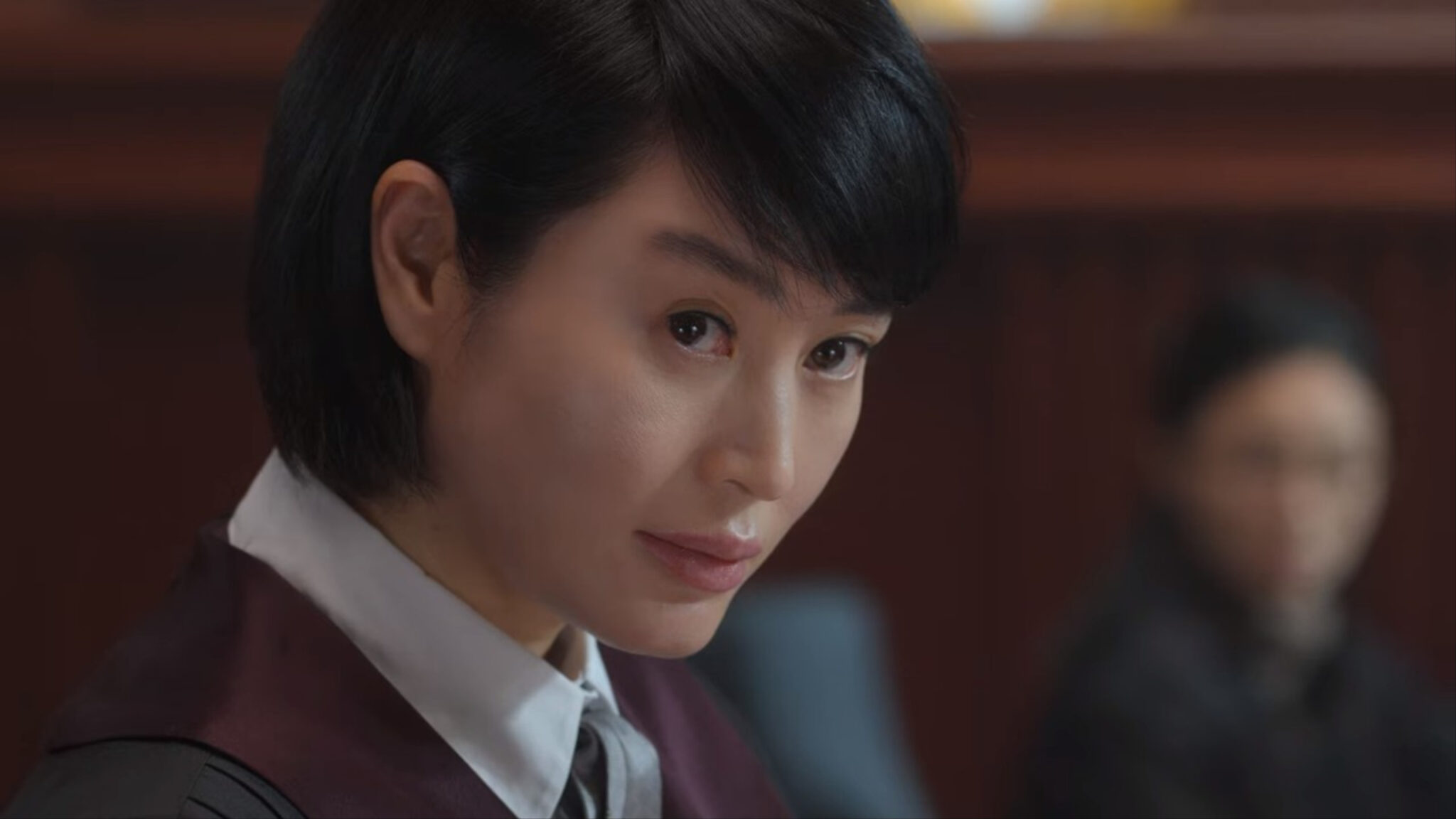
Netflix’s new original drama takes an inside look at South Korea’s juvenile criminal justice system. The judge leading our cast of characters makes no attempt to hide her disdain for teenage delinquents and quickly butts heads with her more idealistic colleagues.
Editor’s note: Coverage will continue with a second comprehensive review, so please refrain from discussing any plot points beyond Episode 1 in this post.
EPISODE 1 FIRST IMPRESSIONS
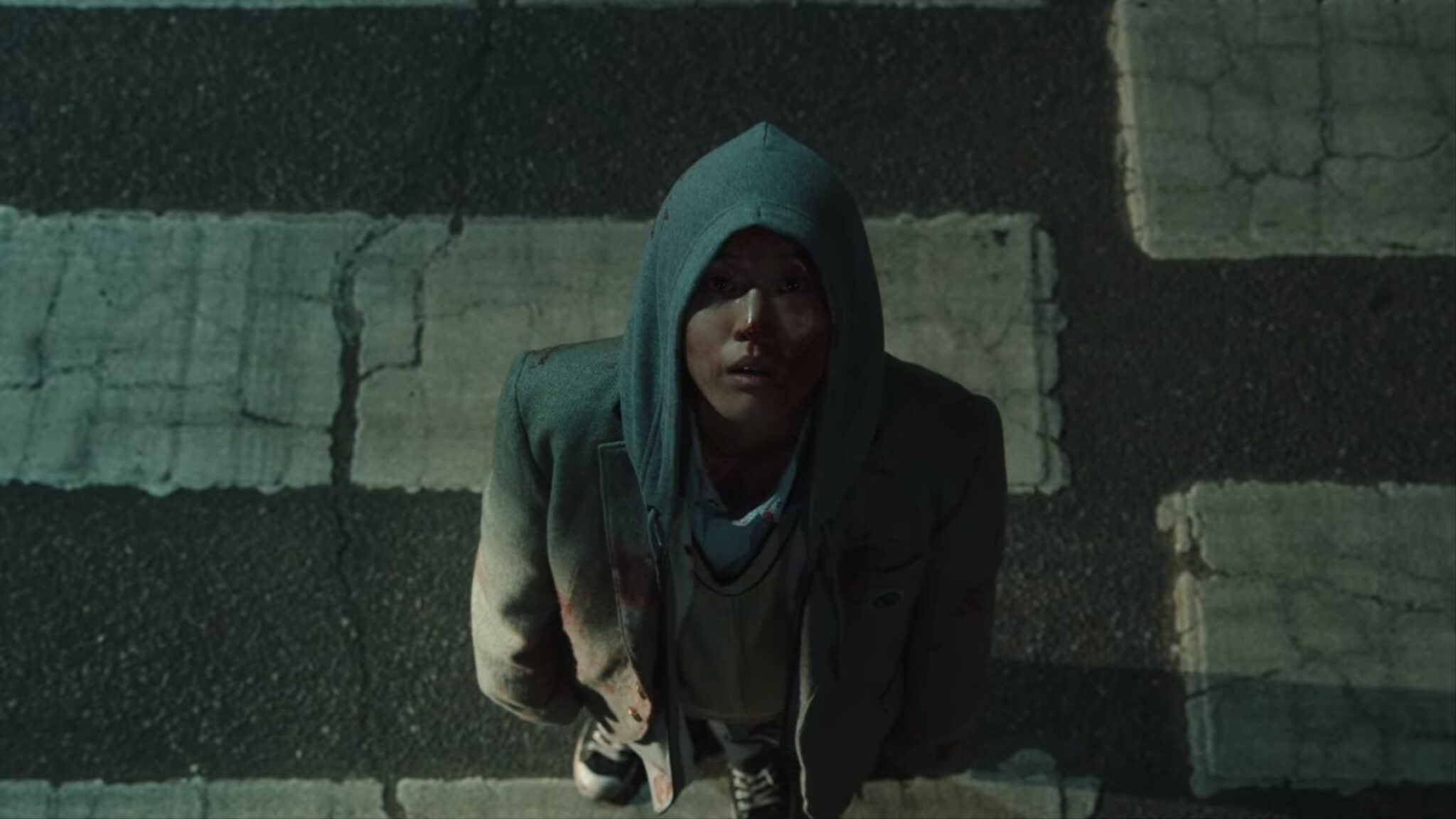
When I heard that Juvenile Justice was about a judge who hated teenage criminals, I was eager to watch. As some of you may know from reading my staff spotlight, I almost became a high school teacher, and part of the reason I noped out of the profession faster than Usain Bolt was because I found teenagers to be absolutely terrifying. Y’all, I think I may have just found my spirit animal. Or at least, the spirit animal I wish I had. I’m more of a bunny, whereas SHIM EUN-SEOK (portrayed by the amazing Kim Hye-soo) is all tiger. We don’t immediately meet our leading lady, though.
Instead, we open to snow, Christmas lights, and a merry soundtrack of “Carol of the Bells.” Stumbling through the brightly lit winter wonderland is a thirteen-year-old boy whose jacket and face are smeared with blood. It’s an eerie contrast, but it’s a perfectly executed opening scene that sets the tone for the rest of the episode, which is all about navigating a world of opposites: adults against juveniles, crime and punishment, lies versus the truth.
In a daze, the boy, BAEK SEONG-WOO (Lee Yeon) wanders to a police station, where a concerned officer stops to check on his well-being. But Seong-woo isn’t there seeking help. Instead, he pulls a bloodied ax from his pocket and turns himself in for the murder and mutilation of Yoon Ji-hu, an eight-year-old boy.
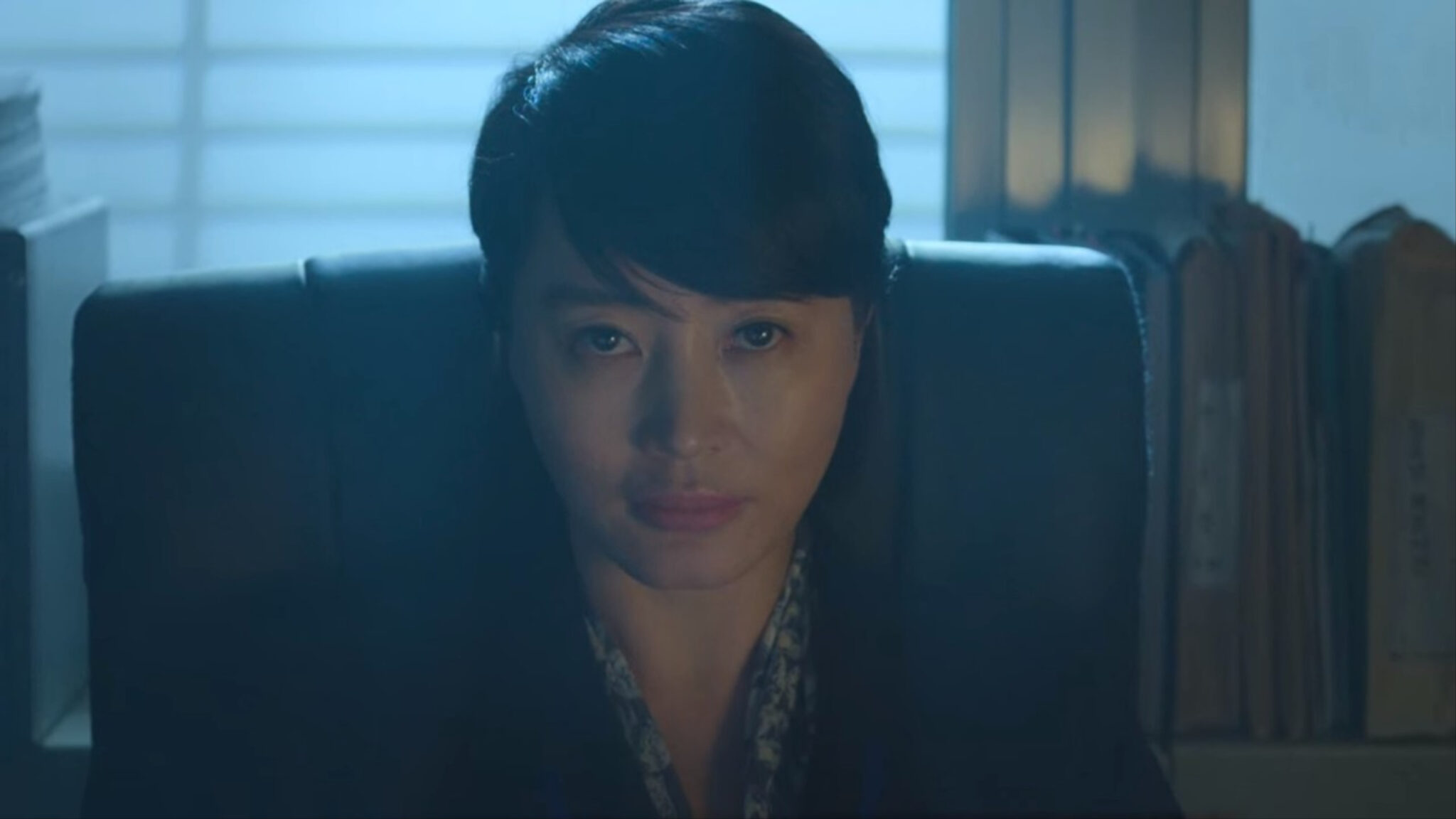
The murder sends a ripple of outrage through the community, and people protest, demanding reformation of the current laws that prohibit minors under the age of fourteen from serving substantial jail time. Juvenile offenders are instead put through a rehabilitation program, which the public considers too light a sentence for heinous crimes like murder. (To note, this is actually an important real-life issue being discussed in South Korean politics currently.)
Enter Eun-seok, one of twenty juvenile court judges in the entire South Korean judicial system. She’s calm, collected, and borderline emotionless as she coolly answers a series of prompts about her profession in front of a camera. The interview ends with the question, “Why did you want to become a juvenile judge?” and Eun-seok — staring down the camera lens like she’s daring it to disagree with her — bluntly answers that she absolutely detests juvenile criminals. (I mean, I certainly get it.)
She transfers to Yeonhwa District Court, where Judge CHA TAE-JU (Kim Mu-yeol) doesn’t initially recognize his new office mate because he’s a bit sexist and assumes Eun-seok is a man because of her name. She responds to his flub by reminding him that she’s his senior, and he looks properly chastised.
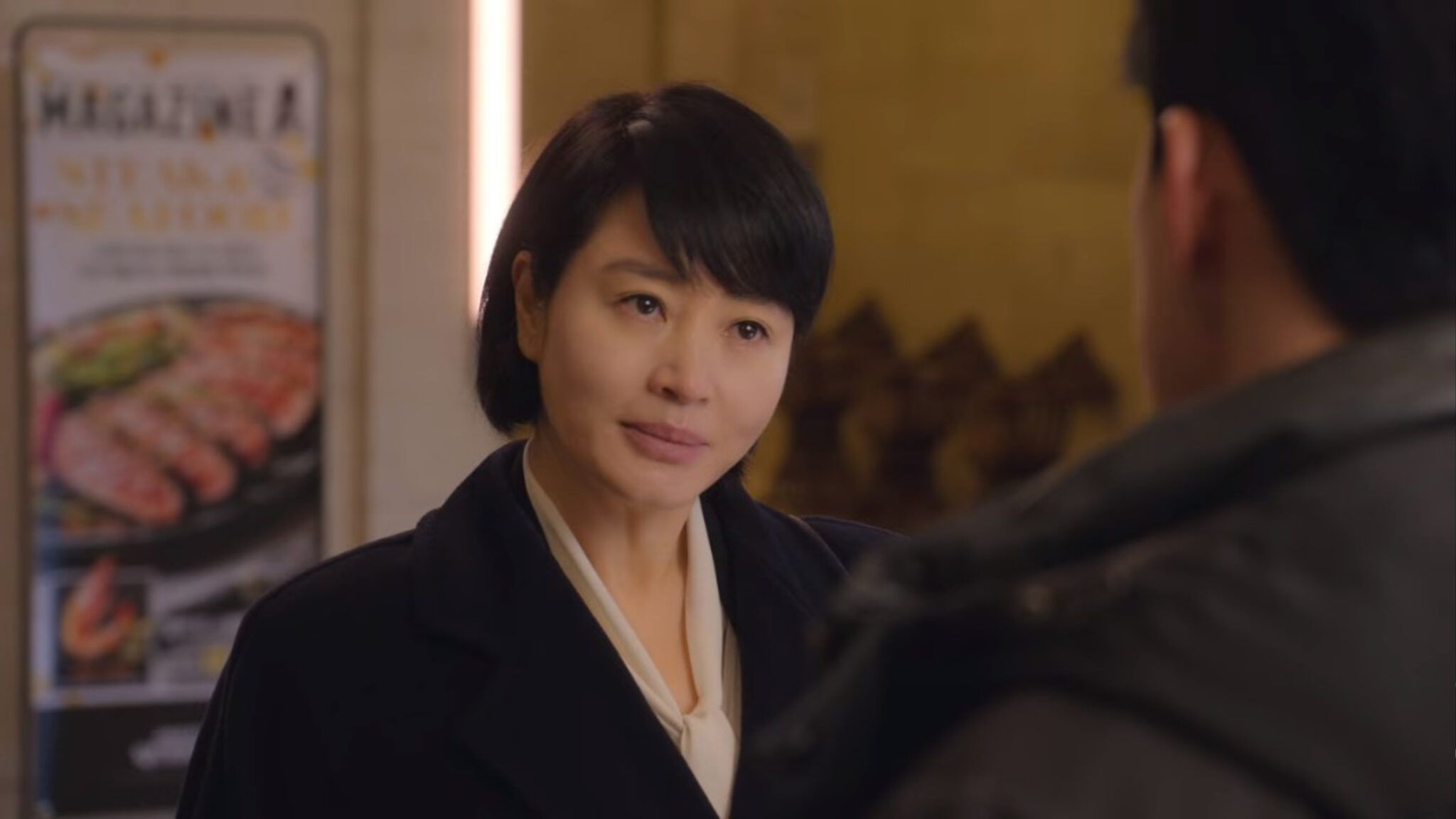
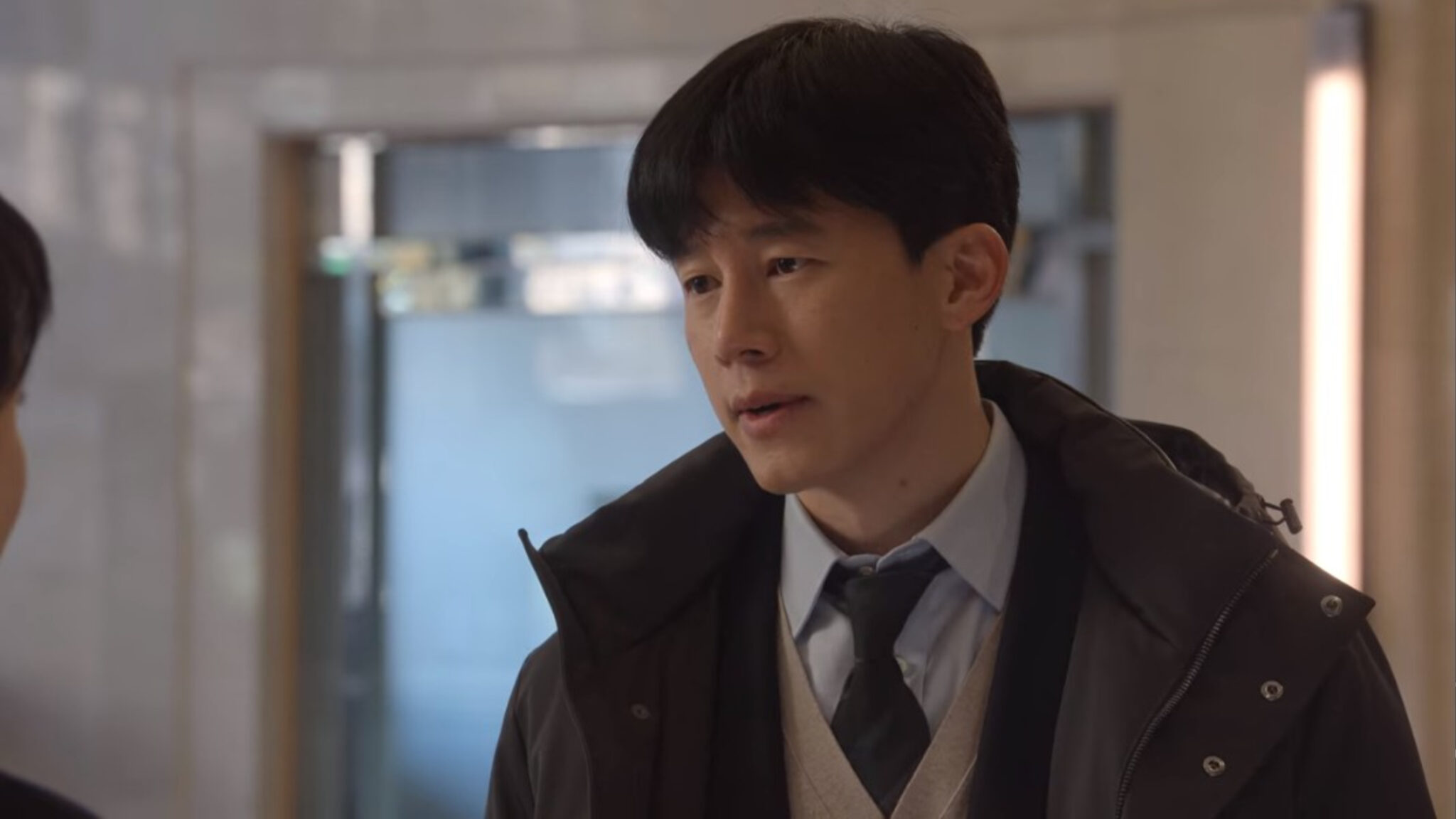
Even so, he’s undeterred by — or oblivious to — Eun-seok’s “do not talk to me” body language. He rambles on about how their district differs from her old one, and then he insists that she join him and the rest of the staff for lunch with the recently released kids under their care. She reluctantly tags along, but she keeps glancing at her watch while Tae-ju plays the role of overly invested guidance counselor.
They’re stopped from leaving the restaurant by a woman claiming one of the reformed juveniles stole her wallet. The woman appears to be prejudiced against the teens, having overheard the conversation at their table and realized they have criminal records. Tae-ju goes to bat for the accused girl, but Eun-seok, who is put off by his naiveté and blind faithfulness, suggests they call the police.
Tae-ju steps on his soap box and lectures her, not realizing Eun-seok witnessed the accused girl steal a wallet from someone’s purse. The reveal is a bit surprising because idealistic characters like Tae-ju are usually the ones who reform cynics like Eun-seok into thinking humans are fallible but innately good. I appreciate the dose of realism, though. If this story is headed in the direction of Eun-seok becoming slightly more tenderhearted, I’m glad neither her beliefs nor her authority were immediately undermined to prove she’s in the wrong for her disenchantment.
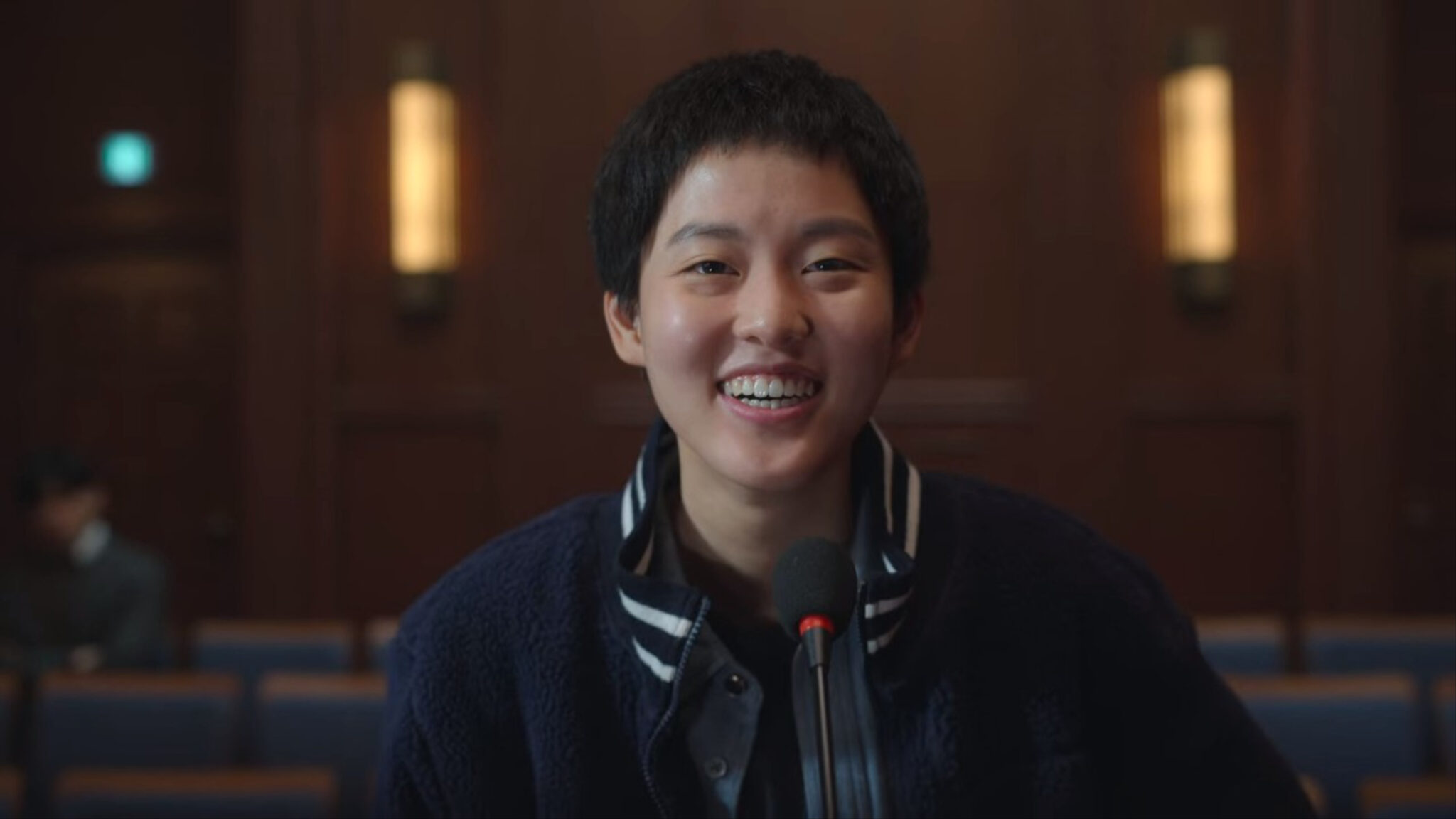
Eun-seok and her team are assigned Seong-woo’s case, and he appears before her in court. He’s downright creepy — a sociopath in the making. But as he describes the build-up to the murder, we flashback and see events from his perspective, and can kind of understand his mental state and what made him snap.
Eight-year-old Ji-hu is pure chaos, loudly running around Seong-woo’s apartment and asking to play his video games even though Ji-hu is only supposed to be there to use Seong-woo’s phone to call his mom. The scenes are loud, jerky, and distracting, showing us the events leading up to the murder as they felt for this schizophrenic teenager.
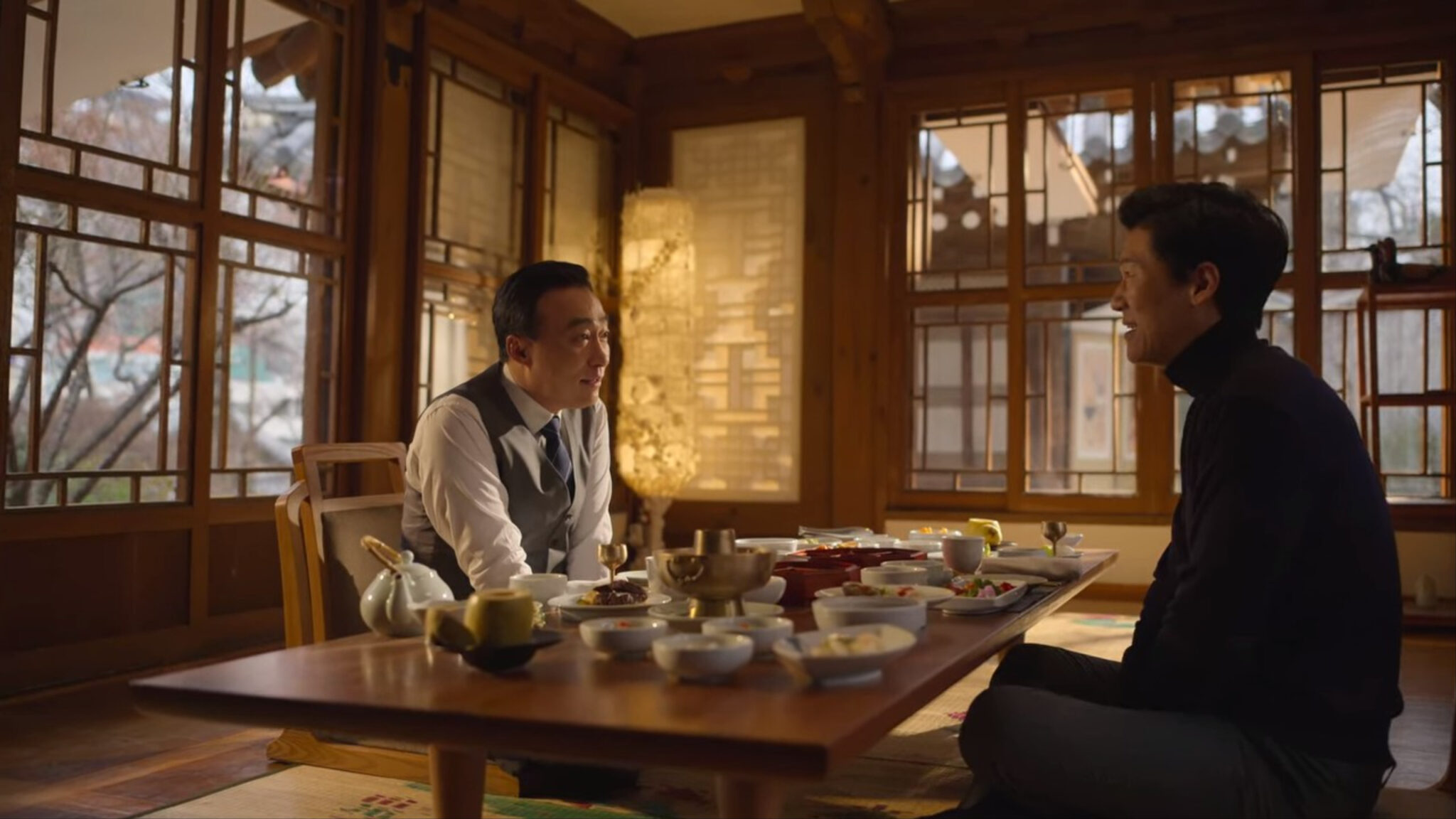
Despite Seong-woo’s creepy, unapologetic recount of the murder, Eun-seok is suspicious. A child with schizophrenia is unlikely to have had the patience required to skillfully clean the crime scene and dispose of the body. Also, why would he turn himself in after painstakingly covering up the murder?
The answer: he had an accomplice. He turned himself in so he could abuse the system and receive a lighter punishment on behalf of the real killer, who is too old to be protected by the Juvenile Act. Eun-seok has enough evidence to suspect that sixteen-year-old Han Ye-eun is the real killer, but Presiding Judge KANG WON-JUNG (Lee Sung-Min) has political aspirations and wants the case wrapped up quickly.
Tae-ju agrees with his superior, believing they should conclude Seong-woo’s trial before looking more closely at Ye-eun. For all his idealism and kind-heartedness towards juveniles, he forgets that there is another child involved: the murdered Ji-hu.
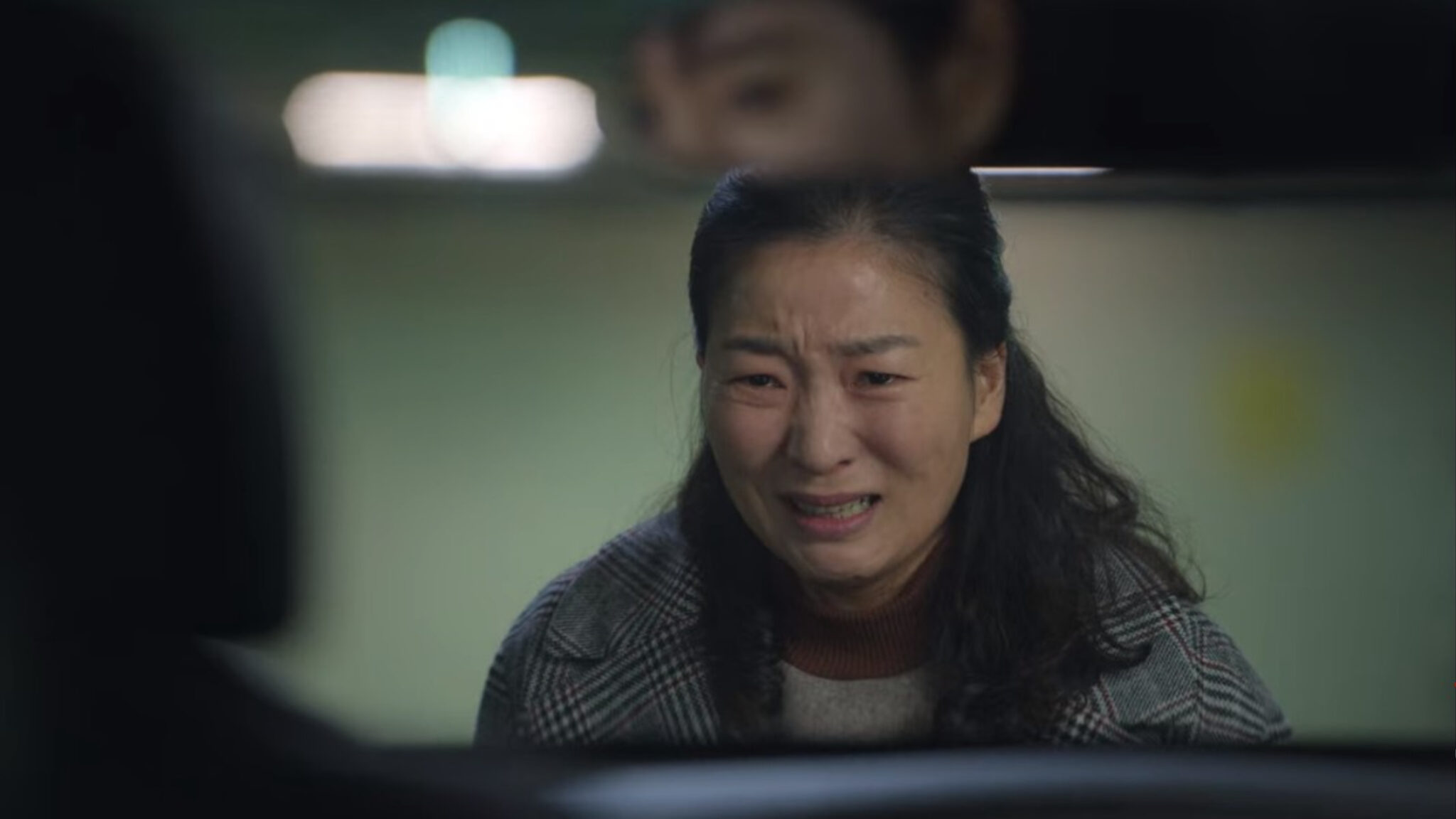
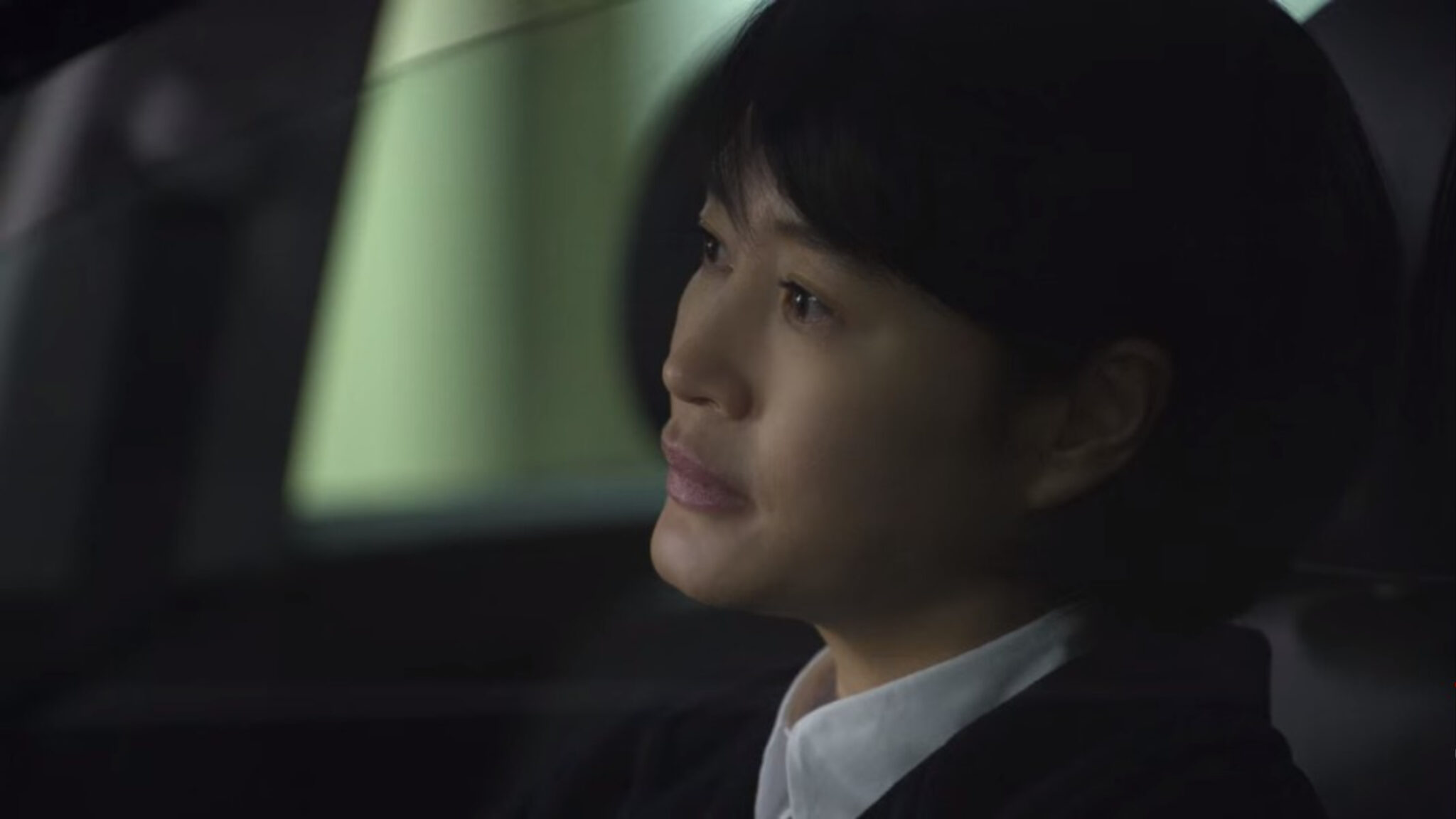
Eun-seok has two very different encounters with the mothers of the victim and the accused. Both women appear to be low-income single mothers, but that’s where their similarities end. Ji-hu’s mother sadly approaches Eun-seok in her office, offering a selection of Ji-hu’s favorite foods as she pleads with Eun-seok to find justice for her son. In contrast, Seong-woo’s mother corners Eun-seok in a parking garage. She’s also in hysterics as she pleads for Eun-seok to go easy on Seong-woo.
Even though, by this point, we know her son isn’t the killer, she doesn’t invoke any sympathy because it’s hard to forget her earlier appearance in court. After arriving late, she seemed unconcerned by the importance of her son’s trial. After all, she knows Seong-woo will only receive a slap on the wrist for his crimes. No big deal, right? Except he’s accused of brutally murdering another child, and instead of begging for forgiveness or apologizing to the mother of the victim, she asks Eun-seok to be lenient with her son’s punishment. Gross.
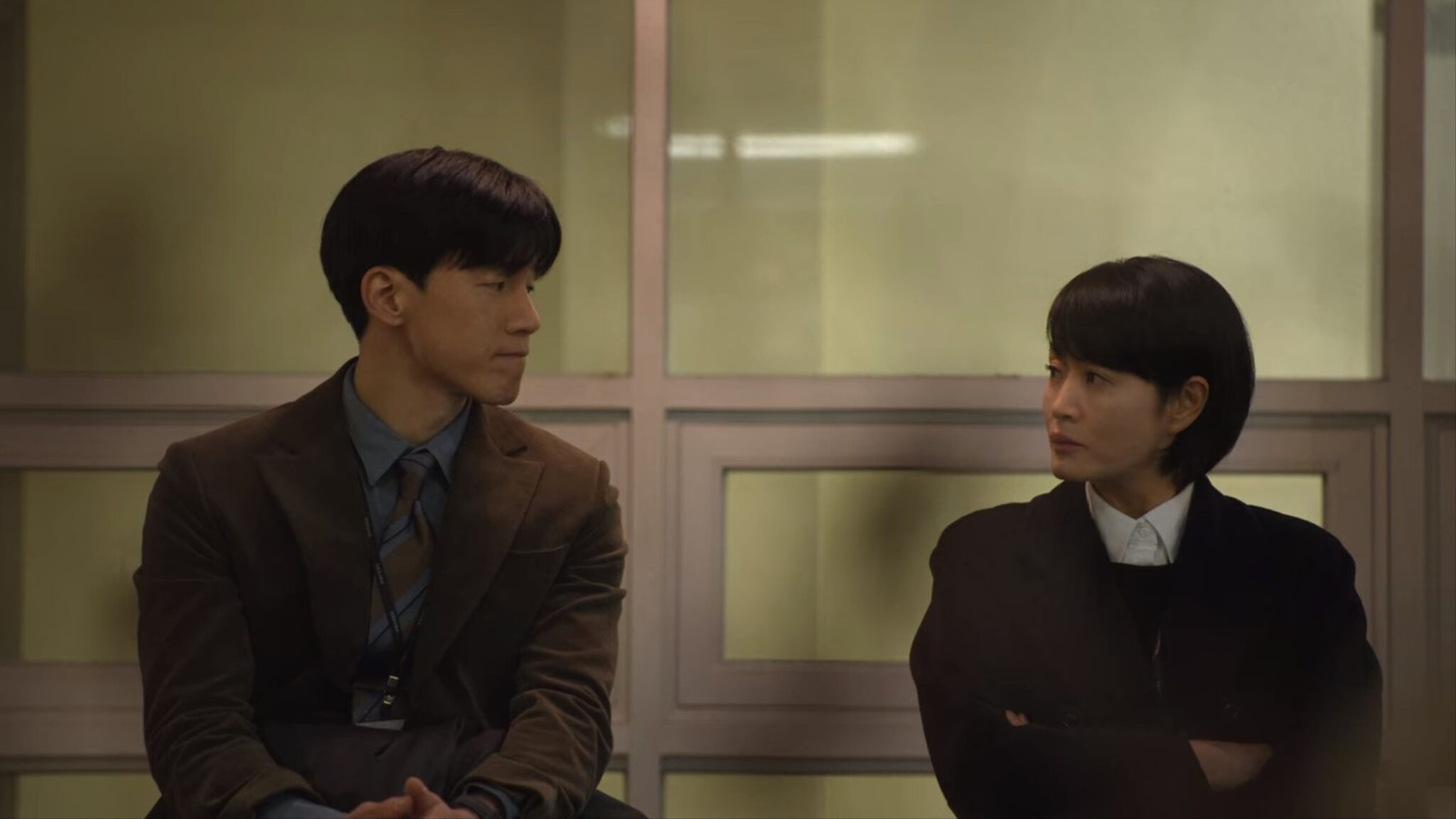
Tae-ju may be overly optimistic, but it seems like he truly cares about kids. Unprompted, he realizes that the ethical thing to do is ensure the real killer is properly punished for her crime. He teams up with Eun-seok to locate Ye-eun, and using his network of reformed teenagers, they are able to locate her at an internet café.
Ye-eun bolts, but Eun-seok chases after her. Not only is Eun-seok fast and hot on the teen’s heels, she’s part terminator. During her pursuit, she gets hit by a white Truck of Doom, dusts herself off, and keeps on chasing! I’m not sure if it was an intentional jab at the often used trope that usually incapacitates our K-drama heroes, but either way we have confirmation that Eun-seok is a complete badass. Even though she’s injured a couple more times, the episode ends with Eun-seok cornering Ye-eun in an alley, tensely engaging in a face-off.
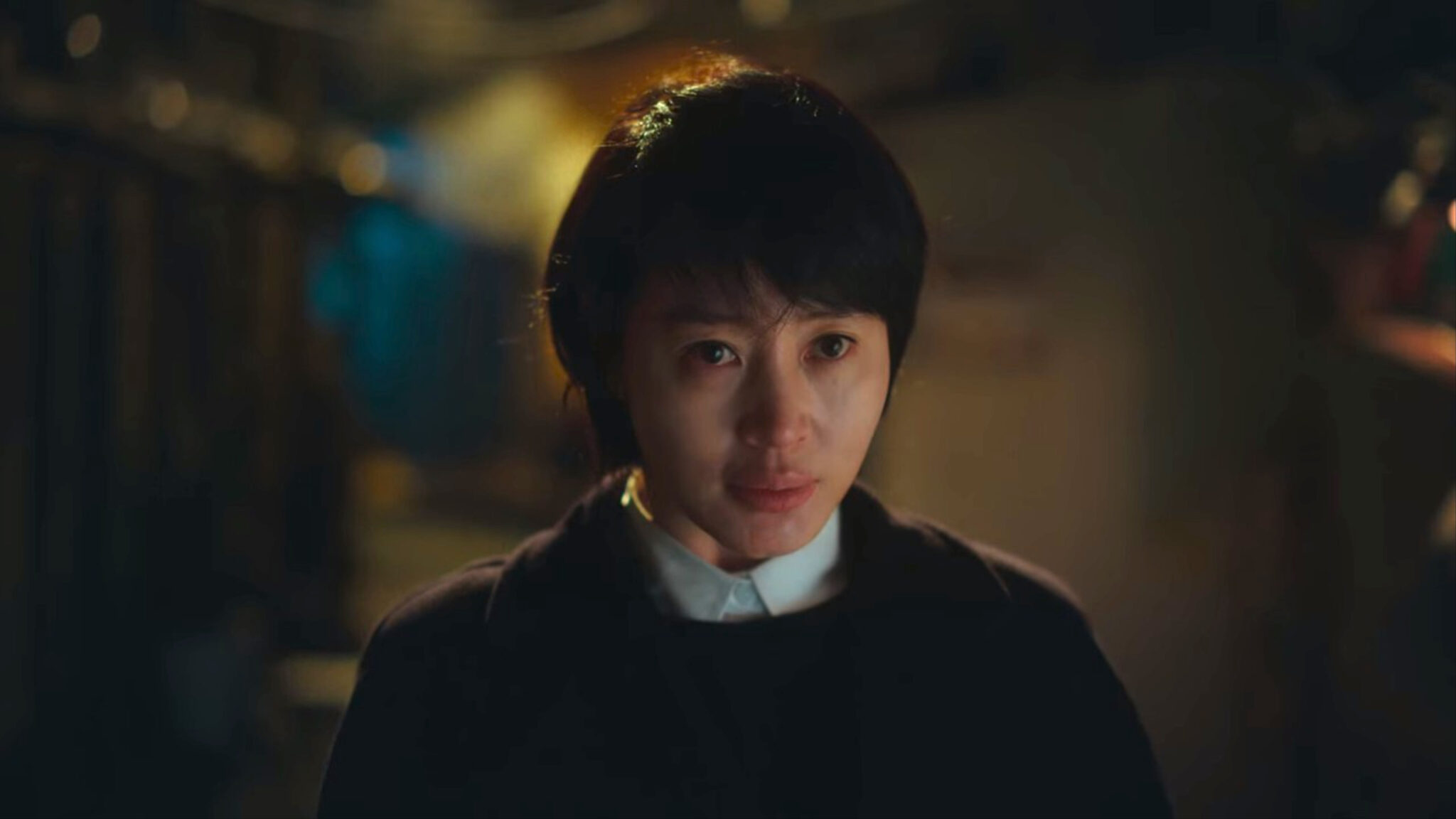
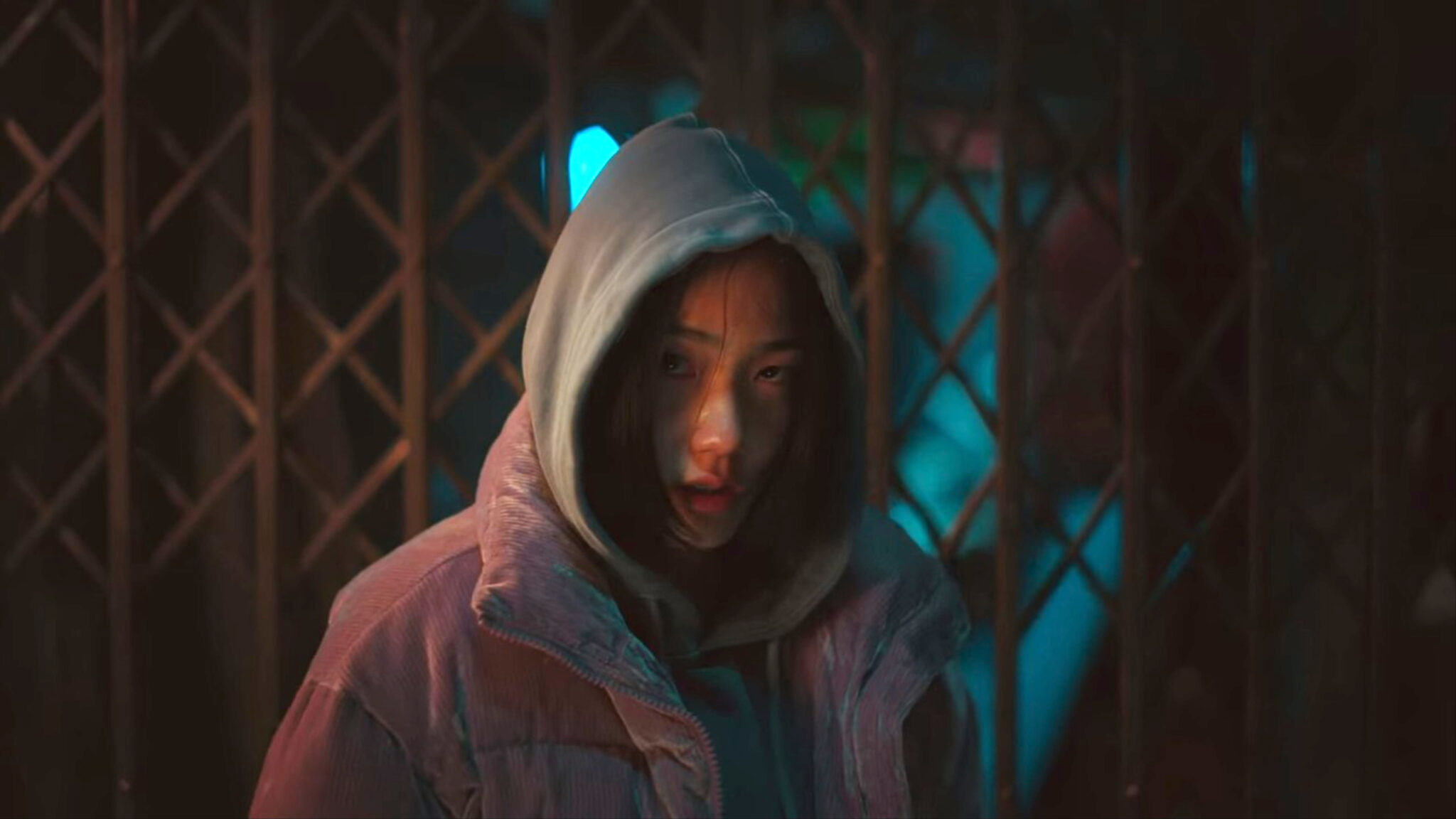
Wow. Just wow. Juvenile Justice has so far exceeded my expectations. For some reason, I assumed this drama would be more humorous, likely because adults who hate children are either portrayed as villains or used as comedic relief. I know I’m a bit jaded from my student teaching experiences, but I appreciated the divergence from the usual inspirational message that all it takes is a loving hand and the right adult to reform a child headed down the wrong path.
What many of the characters see as Eun-seok’s excessive cruelty, I perceive as realism and practicality. She’s not out to punish kids because she hates them; the picture of Ji-hu she keeps on her desk, and her drive to find his real murderer, clearly indicate that she cares about children. Instead, she disagrees with the judicial system’s light-handed approach to punishing minors, and it does bring up an interesting question: should murderers receive a more forgiving punishment simply because of their age? Or should the crime — not the age of the perpetrator — dictate the punishment?
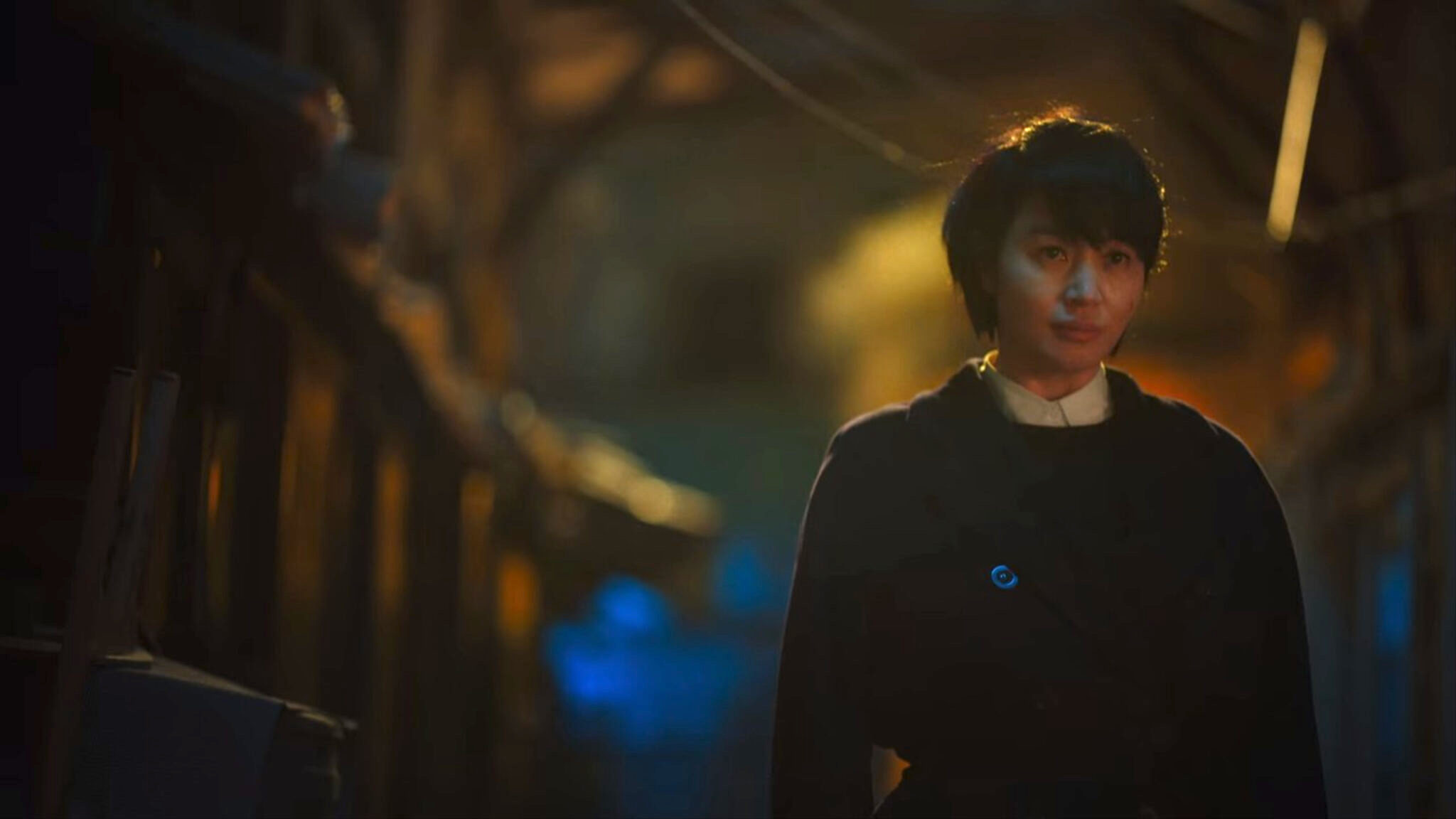
RELATED POSTS
Tags: first episodes, First Impressions, Juvenile Justice, Kim Hye-soo, Kim Mu-yeol, Lee Jung-eun, Lee Sung-min


![[Beanie Recs] Feel-good fantasy?](https://d263ao8qih4miy.cloudfront.net/wp-content/uploads/2022/05/BeanieRecs.jpg)


![[Beanie Review] A Virtuous Business](https://d263ao8qih4miy.cloudfront.net/wp-content/uploads/2024/10/AVirtuousBusiness_reviewb.jpg)




Required fields are marked *
Your email address will not be published. Required fields are marked *
1 rubytuesday
February 26, 2022 at 4:47 PM
I'm a little wary about this one. As someone who is firmly pro-rehabilitation, ESPECIALLY when it concerns children, Eun-seok is not someone that I can even remotely relate to ideologically. Which isn't necessarily a bad thing of course, but we know that prison does not prevent crime; if anything, it further perpetuates criminality by reducing the financial and social mobility of ex-inmates once they are released. And I'm not going to pretend that I know the solution to extreme cases like the one portrayed here, but considering that the vast majority of juvenile cases are not like this, Eun-seok's attitude towards juvenile offenders is a little disturbing to me.
And ah, yes. OF COURSE, the creepy kid is schizophrenic. Because what's a crime kdrama without a little demonisation of mental illness?
Required fields are marked *
DancingEmma
February 26, 2022 at 5:36 PM
@rubytuesday: I agree completely. Thank you for making this sorely needed comment. Apart from the program’s problematic depictions, I also found this review disturbing on multiple levels. I’m not naive, bereft of practicality or indifferent to the suffering of the victims and their families but to end a review by suggesting as in the closing lines that “should murderers receive a more forgiving punishment simply because of their age? Or should the crime — not the age of the perpetrator — dictate the punishment?” is posing a dangerous and false dichotomy. The age of criminal responsibility is brutally low in many jurisdictions the world over including in the developed world and many children’s human rights have been violated and continue to be violated by unjust convictions in this space.
Required fields are marked *
ladynightshade wants her own ryu sunjae
February 26, 2022 at 7:35 PM
@rubytuesday, @dncingemma: Couldn’t have described it better myself. I was already skeptical about this show going in, but I’m disturbed by how much the show seems to side with Eun-seok’s ideology. I can’t speak for the specific situation with Korea’s juvenile justice system, but where I come from, it’s extremely flawed to put it in the nicest way. Many children, especially those from poorer or racialized backgrounds, get disproportionately harsh, maximum sentences for offences that are barely criminal. I know people personally, good people, who’ve been affected by such sentencing. They were not murderers, but often victims of extreme circumstances. There is no way I wouldn’t be pro-rehabilitation after witnessing these things. Most juveniles are not dismembering innocent children. Eun-seok’s viewpoint is dangerous as a judge who should be impartial and fair, and it’s disturbing how gung-ho the show is to prove her right and the pro-rehabilitation judge wrong.
The schizophrenia part is infuriating. I’m so, so tired of people with serious mental illnesses be so constantly dehumanized. If anything, most of these individuals pose more of a danger to themselves than to others. This portrayal is extremely harmful.
Required fields are marked *
knewbie
February 27, 2022 at 10:36 AM
Ideologically I agree with everyone on this thread, and I do find both ep1 and this review a bit disturbing too. For a start, "light-handed" is a pretty simplistic way of describing the system portrayed. On the one hand, I'm pretty sure it impacts some youngsters in ways that far exceed their crimes. On the other hand, subject to political and media pressure, it is not afforded the time or space to deal thoughtfully with the more serious offenders.
I'm a bit more hopeful about the show, however, cos I don't think it is as pro-Eun-seok or anti mental illness as it might appear to be. After all, it's precisely because Seung-woo is schizophrenic that Eun-seok doesn't believe he killed Ji-hoo. And it's thanks to Tae-joo's rapport with Seol-ah that Eun-seok manages to find Ye-eun. Still, I wonder if it's a good idea to start the show with such an exceptional and emotive case.
Required fields are marked *
hacja
February 27, 2022 at 12:26 PM
Like @knewbie I think if the show ended at episode 1, I would agree with the early critiques. But there are a lot of episodes to go. As for the demonization of mental illness, again, we'll see. Will the show use this case to explore issues of personal responsibility, to argue in the end that those who are mentally ill cannot be held as responsible for crimes?
And mental illness IS a real issue in a lot of the horribly too-numerous school shootings in the U.S. (As well as 100 times too many guns, but that's the U.S.'s problem, not Korea's). If we would ever use these real life incidents to treat juvenile mental health seriously, and not just dismiss these killings as evidence of evil intent, then that wouldn't be demonization, in my opinion.
Again, we'll see about the shows politics and point of view, but I'm going to give it a chance, plus not to be offensively frivolous, I do really like Kim Hye-soo as an actress.
Required fields are marked *
rubytuesday
February 27, 2022 at 7:45 PM
I definitely want to give the show the benefit of the doubt, I'm just the cynical sort, and the first episode didn't inspire the most optimism, haha.
The reality is that severe mental health issues factor into far fewer mass murders/shootings (only about 11% mass murders, and about 8% of mass shootings, worldwide, according to a recent study) than the general perception tends to assume. In fact, people with severe mental health disorders are significantly more likely to be the victims of violence than the perpetrators.
And it's nice that they aren't making Seong-woo the murderer, but they still intentionally characterised him as a creepy kid unfazed (or even amused) by a brutal murder of a child. Maybe they'll turn it around, but I'm not going to hold my breath.
I'm am definitely down for both better mental health awareness, and Kim Hye-soo, though!
knewbie
February 27, 2022 at 11:08 PM
@rubytuesday I do think K-drama needs to be more careful in its representation of mental illness, particularly where crime or violence is involved. Yes the protagonist proves the innocence of mentally ill person person later, but surely it isn't necessary for that person to seem so scary or creepy in the first place, except for the very questionable purpose of making the twist twistier. The dodgiest thing in ep1 is that bit where Seung-woo drags Ji-hoo out from under the bed. The slasher movie vibe is not just unnecessary but downright misleading, since it's highly possible the whole thing didn't even happen at all.
na-bi
March 6, 2022 at 4:56 PM
YES. I'm absolutely disturbed by the amount of people i've seen rooting for her and her attitude of hating young offenders. I have nothing to add to ur comment, it's given me some home that there are compassionate people out there
Required fields are marked *
2 Miky
February 26, 2022 at 5:18 PM
What's most disturbing is that most of this cases presented are real life cases,like the one here...
Required fields are marked *
DancingEmma
February 26, 2022 at 5:45 PM
@Miky - Unless it is a credible documentary, we should take any claims in any programs that they are based on RL cases with a huge pinch of salt as dramatic license is their best friend. I doubt very much any judge would chase an alleged juvenile offender anywhere in the world down the street, and continue chasing them after being hit by a truck aspiring to be a ‘badass’. It is just absurd beyond belief.
Required fields are marked *
Miky
February 26, 2022 at 6:34 PM
It's about the case with the child that was killed,quite famous a few years back...
Required fields are marked *
3 miss h
February 26, 2022 at 6:35 PM
This was more of an introductory episode. I thought it started to find its footing in the next couple episodes, which I'll try to discuss in the final review. It was an okay start though the way Kim Hye-soo is drawing out her lines takes some getting used to.
Required fields are marked *
4 pohonphee
February 26, 2022 at 8:38 PM
Kim Mo-yeol looks like Lee Sang-yoon here 😄. Lee Sung-min is on fire 🔥
Once work with something like this, Juvenile cases were the ones that made me needed to take time off in interview, because I got to go out to calm my self or else I cry in fort of them. My college asked me why I was about to cry, I just didn't know, I couldn't point out what is wrong, this teenage just deserved much more, the way he/she tells her/his story like it is nothing was breaking my heart.
I am just glad I am not a judge, prosecutor, police or a president who can or must decide the type of punishment for them, because my heart can never take it. I probably give them leeway which for cases it is not the best solution.
Required fields are marked *
5 Kurama
February 26, 2022 at 11:59 PM
I would have liked they used a more commun case than a little boy being dismembered with an ax... Everything looked weird. The boy has a mental sickness, it doesn't seem to play a part in his evaluation. She was investigating him alone when he was only 13 years old, where was his lawyer? His doctor?
Both judges look to have a painful past that made them choose this job. I wonder if it's a good idea because it seems to play a strong role on their judgment.
Everytime, there are minors connected to a crime, I wonder about parenting in Korea. They always look so indifferent to the crime itself but very protective to their child. It's really a thing? Or just a KDrama thing?
Required fields are marked *
jerrykuvira
February 27, 2022 at 1:42 AM
Its not a KDrama thing. Thats how some parents behave when their wards are found at the other side of the law.
Its one thing to act in the interest of your child so they do not overcompensate for a crime, but when you trivialize the offence committed, it sets me off, and any sympathy from me could be lost.
Required fields are marked *
Kurama
February 27, 2022 at 2:04 AM
This kind of drama always reminds me Miryang Middle School Girls Rape Incident and how the parents reacted... It was so awful.
Required fields are marked *
jerrykuvira
February 27, 2022 at 2:36 AM
If it were some other crime, maybe I would be amenable to considering age, despite the action of parents. But when its rape or murder or acts that fall into the same category, it's always a shame to see parents acting like they'd stomach the incident were they at the receiving end.
Required fields are marked *
miss h
February 27, 2022 at 8:59 AM
I think part of it for Korean parents in particular is that they seem very concerned with saving face.
Required fields are marked *
6 jerrykuvira
February 27, 2022 at 2:26 AM
The law is flawed.
We've seen people take advantage of the law to either over-punish or under-punish, and we all know the class of people who receive either punishments.
'should murderers receive a more forgiving punishment simply because of their age? Or should the crime — not the age of the perpetrator — dictate the punishment?'
I worked on a debate topic "Should juveniles should tried as adults". One thing the topic pointed out was that underage wards commit some crimes so gruesome on another level, its hard to wrap our heads around it. Yet because they are juveniles, there's a high chance they wouldn't receive punishment appropriate for their age nor to the crime. And many a time, there is no remorse on the part of the parents of this wards. All they look out for is that their child gets off with minimal or no consequences.
So if I were to answer the question concluding this review. To the first one, NO. To the second question - No. Both should be weighed before and when meting out punishment.
Required fields are marked *
7 emsel
February 27, 2022 at 8:43 AM
I am holding off my comments on the plots and characters for now as I haven't watched beyond the 2nd episode, but I think Netflix has finally found its footing in Kdramas by not going all pompous on gory and evoking empathy through verbal communication. The first two episodes seemed like any other Kdrama aired over the public or cable channels than a drama produced to capture global audience on a massive scale.
Required fields are marked *
pohonphee
February 27, 2022 at 6:04 PM
LOL pompous and gory. I think K drama before Netflix is used to with that.
From my observation (hah) Netflix produced K dramas are heavy on the cursing words and the unnecessary sex scenes (Squid Games, My Name, etc). Sometimes I think they add the scene for just trying to be edgy.
Required fields are marked *
8 Islander north
March 10, 2022 at 5:48 PM
Lee Yeon: Why is a 13-year old boy character played by a 26-year old female actress? I've checked numerous sites, and they all list her as the one playing Seong-Woo.
Required fields are marked *
neener ~ Inside the Magic Shop ~
March 11, 2022 at 4:36 AM
The PD explained in this video why https://youtu.be/64pvyXqLBaI?t=128
Required fields are marked *